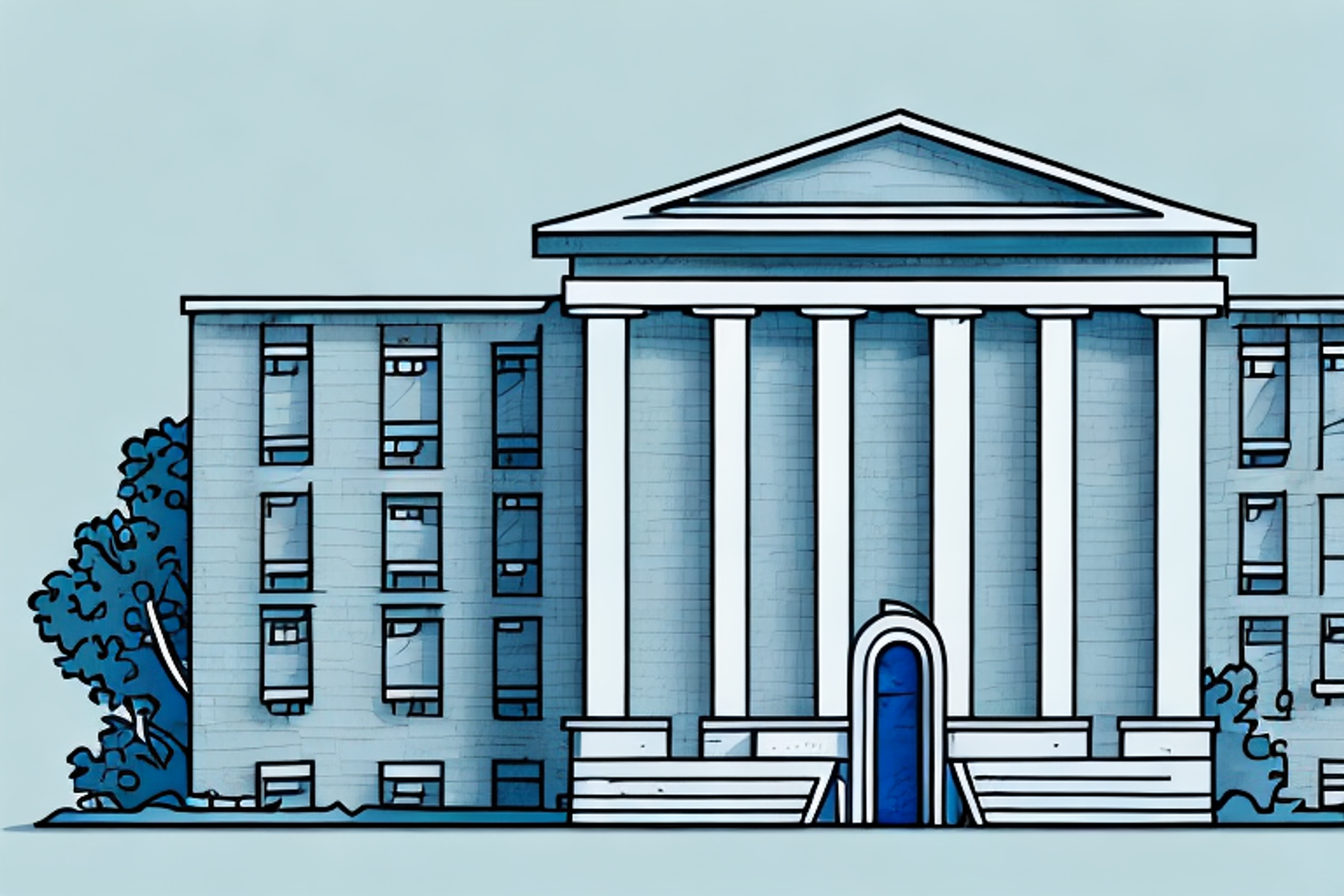How to Get Into University of Florida Levin College of Law (2024-2025)
Preparing for an interview at the University of Florida Levin College of Law? This guide is a must-read.
Posted December 12, 2024

Table of Contents
How Hard Is It to Get Into UF Levin College of Law?
The University of Florida Levin College of Law (UF Law) is one of the top law schools in the nation, recognized for its academic rigor and commitment to preparing future lawyers for impactful careers in the legal profession. UF Law has an acceptance rate of approximately 17%, reflecting its competitive admissions process.
For the JD Class of 2023, UF Law School received 3,968 applications and extended 675 offers, enrolling 181 students. The median LSAT score for the class was 169, and the undergraduate grade point average was 3.91. With its robust reputation, UF Law attracts a diverse group of applicants, including those aspiring to public sector and private sector careers.
UF Law is particularly well-regarded for its programs in tax law, international taxation, and environmental law, and it consistently ranks among the top public law schools in the U.S. The college provides a professional learning environment led by top-tier faculty, offering students access to an exceptional law library, new academic space, and major renovations to enhance the practice of law.
Standing out in this competitive pool requires academic excellence, a compelling personal story, and a well-prepared application. This guide will help you craft a strategy to gain admission to the Levin College of Law, ensuring you’re on track to join one of the nation’s leading graduate schools.

UF Law School Ranking
The University of Florida Levin College of Law consistently ranks among the top law schools in the nation. In the latest U.S. News & World Report rankings, UF Law is ranked #21 among all law schools and is recognized as the #6 public law school in the country. This prestigious position reflects its reputation for academic rigor, innovative programs, and a strong global alumni network.
UF Law is particularly noted for its excellence in tax law, where it consistently ranks among the top programs nationwide. Its environmental law and dispute resolution programs are also highly regarded, showcasing its commitment to providing specialized legal education that meets the demands of today’s legal profession. These rankings underscore UF Law’s ability to prepare students for impactful careers in both the public sector and private sector.
UF Law School Acceptance Rate Over Time
| Class Year | Applications Received | Offers of Admission | Enrolled 1Ls | Acceptance Rate | Yield |
|---|---|---|---|---|---|
| Class of 2023 | 3,968 | 675 | 181 | 17.0% | 26.8% |
| Class of 2022 | 3,850 | 671 | 189 | 17.4% | 28.2% |
| Class of 2021 | 2,703 | 962 | 208 | 35.6% | 21.6% |
| Class of 2020 | 2,853 | 564 | 208 | 19.8% | 36.9% |
Programs Offered by UF Levin College of Law
Juris Doctor (J.D.) Program
The Levin College’s J.D. program offers a full-time, three-year curriculum designed to provide a foundation in justice and the practice of law. The first-year curriculum includes subjects like criminal law, contracts, and professional responsibility, while the second and third years allow students to specialize in areas like business law, intellectual property law, and international law.
Master of Laws (LL.M.) Programs
UF Law offers several advanced graduate school programs, including:
- Taxation: Renowned as one of the best in the country, preparing students for roles in employment law and corporate tax.
- International Taxation: Aimed at those navigating cross-border legal frameworks.
- Environmental and Land Use Law: Focused on preserving and managing the land through innovative legal solutions.
Doctor of Juridical Science (S.J.D.) Program
The S.J.D. program offers an opportunity for graduates to pursue advanced research, often leading to academic roles as professors or judges in their home countries.
UF Law School Requirements
To gain admission to UF Law, applicants must meet several key requirements. The admissions process is competitive, and successful candidates typically exceed the minimum standards:
- Bachelor’s Degree - Applicants must hold a bachelor’s degree from an accredited institution prior to enrolling in UF Law’s J.D. program.
- Standardized Test Scores - UF Law accepts both the LSAT and GRE. The median LSAT score for the Class of 2023 was 169, while GRE scores in the 85th percentile or higher for both Verbal and Quantitative sections are considered competitive.
- Undergraduate GPA - The median undergraduate grade point average for the Class of 2023 was 3.91.
- Personal Statement - A thoughtful, well-written personal statement is required to provide insights into the applicant’s motivations, experiences, and goals.
- Letters of Recommendation - UF Law requires at least two letters of recommendation, preferably from academic or professional sources who can speak to the applicant’s abilities and potential.
- Resume - A current resume highlighting academic achievements, work experience, leadership roles, and extracurricular involvement is required.
- Additional Addenda (Optional) - Applicants may include an addendum to explain any weaknesses in their application, such as a low GPA or test score, or to provide context for personal circumstances.
International applicants must also demonstrate English language proficiency through TOEFL or IELTS scores if their undergraduate degree was earned outside the United States.
UF Law values applicants who bring diverse perspectives, leadership potential, and a strong commitment to the legal profession. Meeting or exceeding these requirements will position you as a competitive candidate for this top-tier graduate school.
Admissions Requirements
UF Law Admissions Stats: LSAT, GPA, & Class Profile
UF Law students represent a diverse and accomplished cohort, bringing leadership, academic excellence, and a commitment to public service.
| Percentiles | GPA | LSAT |
| 25th Percentile | 3.52 | 162 |
| 50th Percentile | 3.90 | 169 |
| 75th Percentile | 3.97 | 170 |
UF Law School fosters a professional learning environment led by exceptional faculty, preparing students for admission to prestigious roles in the legal profession.
UF Law School Tuition
UF Law offers a competitive and affordable tuition rate compared to many other top-tier law schools, particularly for in-state students.
- In-State Tuition (2024-2025): Approximately $22,250 per year
- Out-of-State Tuition (2024-2025): Approximately $39,350 per year
These figures make UF Law one of the most cost-effective options among elite law schools, especially for Florida residents. Additionally, UF Law offers a range of scholarships, fellowships, and financial aid packages to help reduce the financial burden for both in-state and out-of-state students.
When calculating the total cost of attendance, students should also consider living expenses, which are estimated at $17,000 annually, and other costs such as books, transportation, and fees. UF Law’s affordability, combined with its strong employment outcomes, provides a significant return on investment for its graduates.
How to Get Into UF Law With a Low GPA/Test Score
Write an Outstanding Personal Statement
Your personal statement is a critical opportunity to stand out. It should connect your personal and professional experiences to the Levin College of Law’s mission, emphasizing your potential to thrive in its professional learning environment. To make it impactful, identify a central story or theme that highlights your growth, values, and passion for law.
For example, describe how a challenging experience shaped your perspective and resilience, demonstrating qualities UF Law values.
Additionally, showcase leadership by discussing how you've taken initiative in your academic, professional, or personal life, and tie these experiences to how you’ll contribute to the College of Law community. Be specific by mentioning UF Law programs, clinics, or professors that align with your career goals.
For instance, if you’re interested in tax law, discuss how UF Law’s top-ranked taxation program will help you achieve your objectives. If applicable, strategically acknowledge weaknesses in your personal statement by framing any dips in performance as learning opportunities and highlighting how you’ve grown as a result.
Leverage an Addendum
If there’s a specific reason for a low GPA or test score, such as illness, family responsibilities, or work commitments, write a concise, factual addendum. Use this space to provide context without making excuses and demonstrate how you’ve improved in subsequent academic or professional endeavors. A well-crafted addendum can help the admissions committee understand the circumstances behind any weaker aspects of your application.
Emphasize Work Experience and Achievements
If you’ve been out of school for some time, your GPA may carry less weight. Highlight professional accomplishments, leadership roles, or community service projects that showcase your readiness for law school. Examples include managing a team, completing a significant project, or volunteering in legal advocacy. These achievements can demonstrate that your real-world experiences have prepared you for the academic challenges of law school.
Secure Strong Letters of Recommendation
Recommendations can provide a counterbalance to weaker academic metrics. Choose recommenders who know you well and can vouch for your intellect, character, and work ethic. Encourage them to emphasize specific examples of your analytical skills or leadership and instances where you demonstrated resilience or excelled under pressure. Strong letters that highlight your unique qualities can significantly enhance your application.
Ace the LSAT or GRE on a Retake
If your test score is below UF Law’s median, consider retaking the LSAT or GRE. Many applicants see significant improvements with targeted preparation. This may include enrolling in a prep course or hiring a tutor, practicing with real exam questions and simulated test environments, and focusing on specific sections where you underperformed. A higher score can elevate your application and improve your chances of admission.
Need extra guidance? Maximize your chances of getting into UF Law by working with top law school admissions coaches.
5 Expert Tips on How to Get Into UF Law
Admissions committees are looking for more than just academic qualifications. They want well-rounded applicants who can bring unique perspectives, demonstrate leadership, and contribute to the Levin College of Law’s vibrant community. Here’s how to make your application stand out:
1. Craft a strategic narrative. Your application should tell a cohesive story about who you are, what motivates you, and how UF Law fits into your goals. To craft a strong narrative:
- Define your path – Connect past experiences, such as internships, jobs, or volunteer work, to your decision to pursue law. For example, if you worked in a government agency, explain how this inspired you to focus on public sector legal careers.
- Highlight UF Law’s strengths – Reference specific UF Law programs or faculty that align with your career aspirations, like the international taxation or environmental law clinics.
- Demonstrate long-term vision – Explain how earning a degree from UF Law will prepare you to achieve your professional goals, whether in the public sector, private sector, or academia.
2. Build relationships with recommenders early. Strong recommendation letters can make your application more competitive. Start preparing months in advance to secure detailed, personalized endorsements.
- Choose the right people – Professors, supervisors, or mentors who know your work closely can provide more impactful letters than those with prestigious titles but limited interactions with you.
- Prepare a recommender packet – Provide your recommenders with a resume, your personal statement, and details about UF Law, including programs you’re excited about.
- Follow up – Politely check in to ensure timely submissions and express gratitude with a thank-you note.
3. Maximize your test performance. Your LSAT or GRE score is a key component of your application. Boost your score with these strategies:
- Take practice tests early - Identify your strengths and weaknesses by simulating test conditions.
- Target weak areas - If logical reasoning or reading comprehension is a challenge, invest extra study time in these areas.
- Use data-driven prep resources - Tools like LSAT analytics can help you optimize study time.
- Consider a retake - If your initial score doesn’t meet UF Law’s median, retake the exam after focused preparation.
4. showcase non-traditional experiences. UF Law values diversity in backgrounds and perspectives. If you come from a non-traditional path, leverage your experiences to show how they’ll enrich the UF Law community.
- STEM or business backgrounds - Highlight analytical or problem-solving skills that can be applied to intellectual property law or business law.
- Military or public service - Emphasize leadership, teamwork, and decision-making under pressure.
- Creative or Artistic Pursuits - Discuss how these have shaped your critical thinking and adaptability.
5. Prepare for an interview. Though rare, an interview invitation is an opportunity to further distinguish yourself. Be ready to:
- Answer why UF Law - Highlight specific aspects of the Levin College of Law that resonate with your goals, such as its reputation in taxation or environmental law.
- Discuss your story - Share personal and professional experiences that shaped your decision to pursue law.
- Ask thoughtful questions - Show your enthusiasm for UF Law by asking about specific clinics, student organizations, or opportunities.
The Bottom Line
- Aim for Excellence: The Levin College of Law values academic and professional achievements. Target a median LSAT of 169 and a GPA of 3.90 to position yourself as a competitive candidate.
- Leverage UF Law's strengths – Emphasize your interest in the college's robust academic programs, including taxation, environmental law, and international law, to demonstrate a strong fit with its offerings.
- Start early – Prepare your application well in advance to maximize your chances of admission. Submitting early in the cycle ensures a full review by the admissions committee.
- Focus on building connections – Engage with UF Law through information sessions, campus visits, or networking with alumni and faculty. Demonstrating genuine interest in the school and building relationships can leave a positive impression on the admissions committee and help you craft a tailored application.
Take the stress out of your law school application process by working with top law school admissions coaches who specialize in crafting compelling, standout applications for schools like UF Law. Get personalized guidance to maximize your strengths, overcome challenges, and secure your spot at a top-tier law school.











